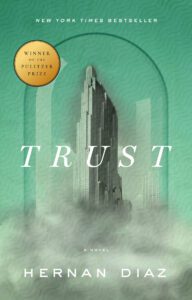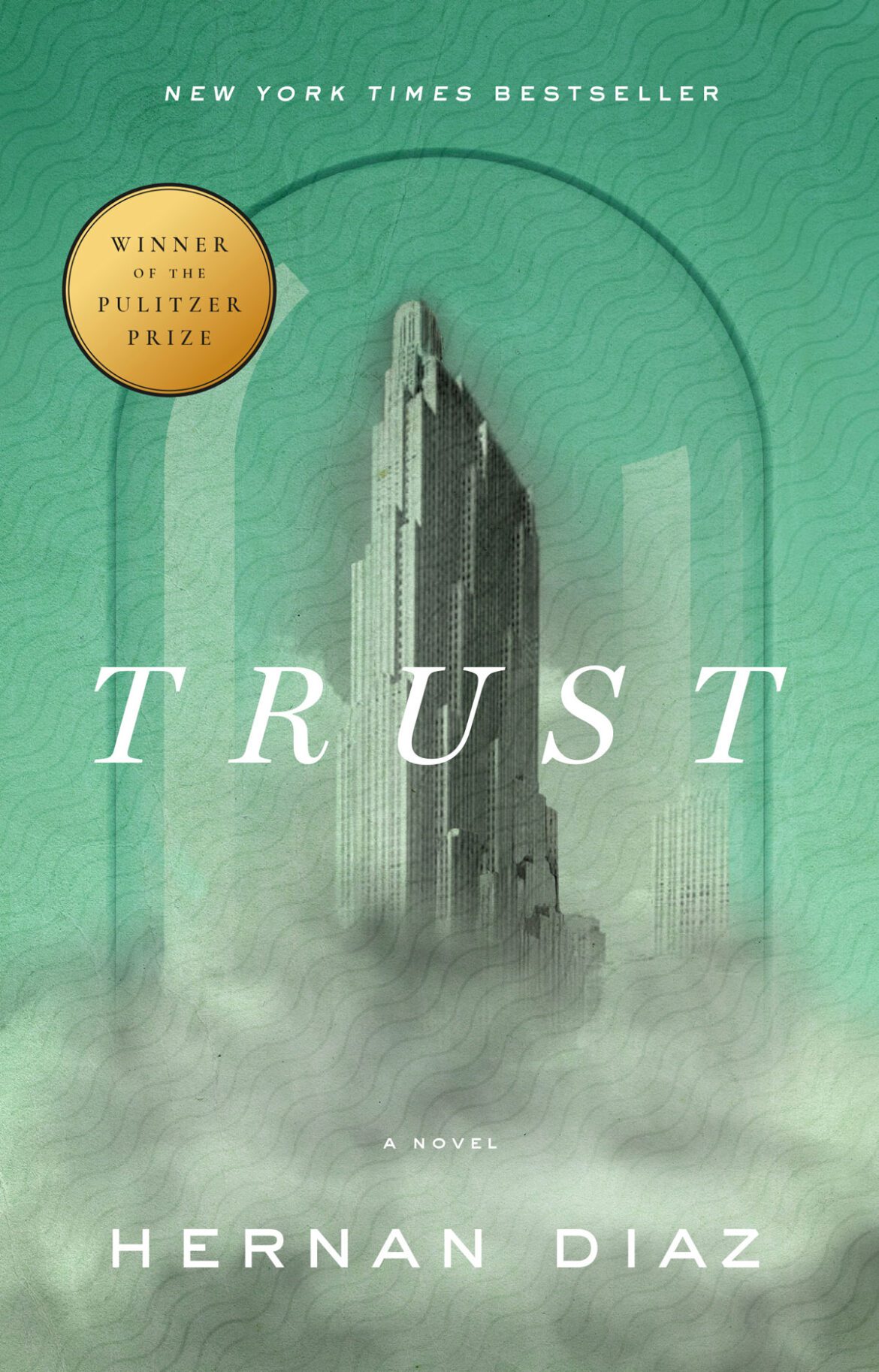
Literary Fiction
Author: Hernan Diaz
Publication Year: 2022
Length: 416 pages
The first bit of this novel felt good. After years of generally disliking or being just okay with books, I felt that good ol’ stirring in my soul that great writing and a story can elicit. Not in a modern way, either. No, in the way I received The Great Gatsby or Wuthering Heights. Books I read in middle school that transported me in some special way to another time and place. I realize, after reading the entirety of Truth, that this may have been a manipulation, but it’s an impressive one nonetheless. Centered around the Wall Street crash of 1929, I thought at first the novel was going to be an alternative history, but while it rides that line, it really shows how power, perspective and myth making can affect the public’s view of reality and history. A tall task, to be sure, but Diaz uses a bit of postmodern storytelling methodology to shift these perspectives to tell us the tale of NYC financier Andrew Bevel and his wife, Mildred.
I don’t pretend to be a person who knows much about literary stuff. But I’m not understanding the general classification of this novel as metafiction. There is nothing particularly meta about this novel. The construction of the novel, split into four separate fictional texts that give different perspectives of the same story, is certainly postmodern in its construct, but there’s no Vonnegut-like omniscient narrator interjecting as the writer of the story he’s telling in a writerly way, nor any kind of writerly asides deconstructing the fictional narrative… Point is, Trust isn’t going to break that fourth wall or twist your reality in knots like the awesome If On a Winter’s Night a Traveler. Which is definitely a work of metafiction. That aside aside, I do appreciate the construct and attempt at doing something interesting and a bit different than the norm.
Just to set it up, the first section of the book is a novel within a novel called Bonds. It is the aforementioned portion that is written in a mix of English gothic and American 1920s narration and drama. It is a novelized version of reality featuring a thinly-veiled Andrew Bevel and Mildred as Benjamin and Helen Rask written by a dude named Harold Vanner. In the context of Truth, Vanner’s sensationalist Bonds is a “hit” novel. People apparently can’t get enough of the juicy insider dope on this shadowy, intensely private billionaire couple. Owed to this exposure and what he feels is a misrepresentation of his financial doings during the Wall Street crash, Bevel decides to write his own autobiography entitled My Life. While also working behind the scenes to destroy Vanner and his remove his book from print and any and all shelves everywhere. His My Life constitutes the section section of Truth and is probably the least interesting portion of the book for me. It’s not only that the autobiography never really happens — and devolves into notes and missing sections as Bevel loses focus and interest — but it’s also a difficult lift to write something that is more dry financial speak and the flattening of Mildred’s personality than anything else. Once that peters out, we move onto the third section, which breaks with the immersive quality of the first two sections, as it’s a reflection of a woman named Ida Partenza, now in her 70s, who was subsequently hired in her early 20s by Bevel to take dictation and help fluff Bevel’s prose to help him finish his unfinished memoir. Her larger “job” in this greater novel decades on is to basically attempt to unwind the differing perspectives between Bonds and My Life of the life and involvement of Mildred in all of this Bevel mishigas. To that end she investigates, finds and steals Mildred’s secret diaries, which become the written record of the novel’s fourth section, Futures. These diaries are presented without commentary, but are sometimes incomplete, illegible and generally a bit cryptic. But it ultimately gives us what we have to assume is a clearer picture of Bevel and how truth and fiction came to a head.
Look, this thing won the Pulitzer. So whatever I say or think doesn’t matter. In fact, anything I say or think never matters. But I feel like this novel could have been so much better. It started incredibly strong and definitely had portions that were compelling and thought-provoking. In fact, the entire endeavor definitely surfaced a serious consideration about who writes history and how. But especially the second section felt unfinished in the same way the actual memoir is left unfinished. As if Diaz wrote it last, realized his Andrew Bevel character was actually his least interesting one and just kind of half-assed it. I’m sure that’s not what actually happened, but that’s what his incomplete — and, frankly, not that interesting — portion felt like. The only sections that felt free of the construct were the first fictional novel-in-a-novel and the third, which is a reflection narrative. Diaz limits his ability to write freely — and it feels that way — in the unfinished memoir and the Mildred diary in the last section. I know writers sometimes purposely create challenges for themselves — it certainly happens in television writing as well — but it can lead to the conceit feeling a bit contrived at times, and awkward in others. Bevel/Diaz writing himself into a cul de sac and basically saying “yada yada” over and over in section two and Mildred/Diaz putting some things into diary entries that a normal human would never put in a diary entry in section four. You get the point: the construct is both the interesting part of the novel, but also a limiting factor that can cause issues that wouldn’t otherwise be present in just a straight narrative. And while I do appreciate the effort, I just feel like there is such a great premise and story here that it could have been more impactful and stronger had Diaz just altered the approach on a couple of the more challenging sections. I definitely would recommend it to people, as even with its limitation in parts, it’s an interesting and thought-provoking read.


